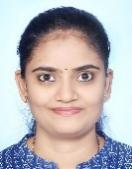Submission Deadline: 31 December 2025 (closed) View: 1391 Submit to Journal
Prof. Dr. Eldho T.I.
Email: eldho@civil.iitb.ac.in
Affiliation: Department of Civil Engineering, Indian Institute of Technology Bombay, Powai, Mumbai 400 076, India
Research Interests: Groundwater Flow and Pollution Investigation; Computational Fluid Dynamics; Application of Numerical Methods in Water and Environment

Dr. Tinesh Pathania
Email: tineshpathania@iitism.ac.in
Affiliation: Department of Environmental Science and Engineering Indian Institute of Technology (Indian School of Mines) Dhanbad, Dhanbad, 826004, Jharkhand, India
Research Interests: Groundwater Flow and Contaminant Transport Modelling, Groundwater Remediation, Meshless Models, Surface-Groundwater Interactions

Dr. Aatish Anshuman
Email: aanshuman@iitbbs.ac.in
Affiliation: Depart of Civil Engineering, School of Infrastructure, Indian Institute of Technology Bhubaneswar, Odisha, 751001, India
Research Interests: Groundwater Flow and Transport Simulation, Reactive transport, Machine learning application

Dr. Sanjukta Das
Email: sanjukta.das1221@gmail.com
Affiliation: Department of Civil Engineering, Indian Institute of Technology Bombay, Mumbai, 400076, India
Research Interests: Groundwater remediation, Bioremediation, Meshless methods, Hybrid weak strong form methods, Simulation-Optimization

The conventional numerical methods such as Finite Difference Method and Finite Element Method are based on the construction of mesh/grid. However, the processes of meshing and re-meshing can be cumbersome and, at times, computationally inefficient; these challenges are effectively addressed by meshless methods. In the meshless method, each node does not need to have a connection with its adjacent nodes. Various meshless methods have been developed in the past. Based on the formulation of the technique, the meshless methods can be broadly classified into strong form, weak form, and a combination of strong and weak form. The study of flow and transport in porous media is a critical issue with widespread applications across numerous fields, including hydrogeology, groundwater management, chemical engineering, and various branches of mechanical and metallurgical engineering. In recent years, meshless methods have gained widespread adoption in various fields, particularly for addressing complex challenges such as the simulation of groundwater flow and contaminant transport. These methods offer significant advantages in modeling problems where traditional mesh-based approaches may be less effective or efficient.
The primary aim and scope of the proposed special issue, "Meshless Methods and Their Applications in Porous Media Problems," is to curate a comprehensive collection of the latest research advancements in meshless methods, with a particular focus on their applications to porous media challenges. The proposed collection of recent research articles will illuminate current trends and offer insights into future perspectives in the field.
Suggested Themes
· Meshless methods and their advancements.
· Application of meshless methods to various porous media problems.
· Meshless methods for groundwater flow simulation and management
· Meshless methods for contaminant transport simulation in porous media
· Meshless methods and their application for groundwater remediation
· Simulation – optimization modeling using meshless methods and AI/ ML tools


 Submit a Paper
Submit a Paper Propose a Special lssue
Propose a Special lssue